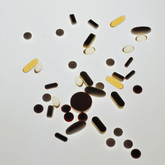Generics/Research
Generics losing out to brand-name drugs in Croatia
A combination of weak national guidelines and powerful marketing by the pharmaceutical industry has led to a rise in brand-name over generics prescriptions for psychopharmaceuticals in Croatia.
Changes to pharmaceutical policy during an economic recession
The use of antipsychotic medicines across Finland and Portugal following the recent economic recession have been analysed in order to gauge the impact of contrasting pharmaceutical policy interventions put in place over that time.
Reference pricing and generics in Finland
Reference pricing and the extension of generics substitution have produced substantial savings in antipsychotic medication costs in Finland. The daily cost of treatment with clozapine, risperidone, olanzapine or quetiapine was cut by at least a third in just one year following the adoption of reference pricing for these drugs.
Generics in Taiwan: urban–rural disparity
A study of the urban–rural disparity of prescribing generic versus brand-name drugs in Taiwan has found that the generics prescribing ratio of the most popular anti-hypertensive (high blood pressure) medicines is reversely associated with the level of urbanization [1].
European initiatives to enhance losartan utilization post generics: impact and implications
Health authorities have the opportunity to realize considerable savings from generics. A wide variety of strategies were instigated across Europe to encourage prescribing of losartan once generics became available with all angiotensin receptor blockers (ARBs) – which are used to treat high blood pressure and heart failure – seen as essentially similar at appropriate doses [1, 2]. These ranged from 100% co-payment for single-sourced ARBs in Denmark to removing prescribing restrictions for losartan but not for single-sourced ARBs (Austria and Belgium), to prescribing targets and therapeutic switching programmes in Sweden [3]. However, some authorities instigated no specific measures, e.g. Ireland, Scotland and Spain (Catalonia) [3, 4], providing an opportunity to assess the effectiveness of different measures.
The ethics of generic immunosuppressive drugs
A literature review of generic immunosuppressive drugs (ISDs) in renal transplant patients concludes that it is ethical to prescribe generic ISDs provided regulatory safeguards are met. Alongside these safeguards, it will be essential to educate patients and to carry out further clinical and health economic studies to inform clinicians, patients and society of the risks and costs of drug substitution [1].
Pharma’s future in China and the US
Although generics will increase their share of all prescriptions in China and the US over the next 10 years, economic and structural incentives for new drug invention and brand-name prescribing by physicians will keep the share of patented drug sales high compared with countries that have more direct government control over the pharmaceutical market [1].
Appropriate generics pricing improves medicines availability in Sri Lanka
The wide availability of generics across Sri Lanka, in both private and semi-government community pharmacies, is increasing the availability and affordability of essential medicines for non-communicable diseases (NCDs) in the country.
Value of generics overlooked in one country that needs them most: Greece
A study of physicians’ prescribing patterns and perceptions towards generics in Greece has revealed a clear need for an appropriate regulatory framework and organized generic drug industry in the country.
Trends in the financial burden of diabetes treatment
The number of adults diagnosed with diabetes in the US increased 75% between 2000 and 2010, resulting in 9% of the adult population with diabetes. The cost of health care for people with diabetes is over twice that of the population overall (2.3 times higher), partly as a result of complications associated with diabetes, including heart disease and stroke. Understanding trends in healthcare costs for this vulnerable and growing patient group will be key to disease management in the future.












